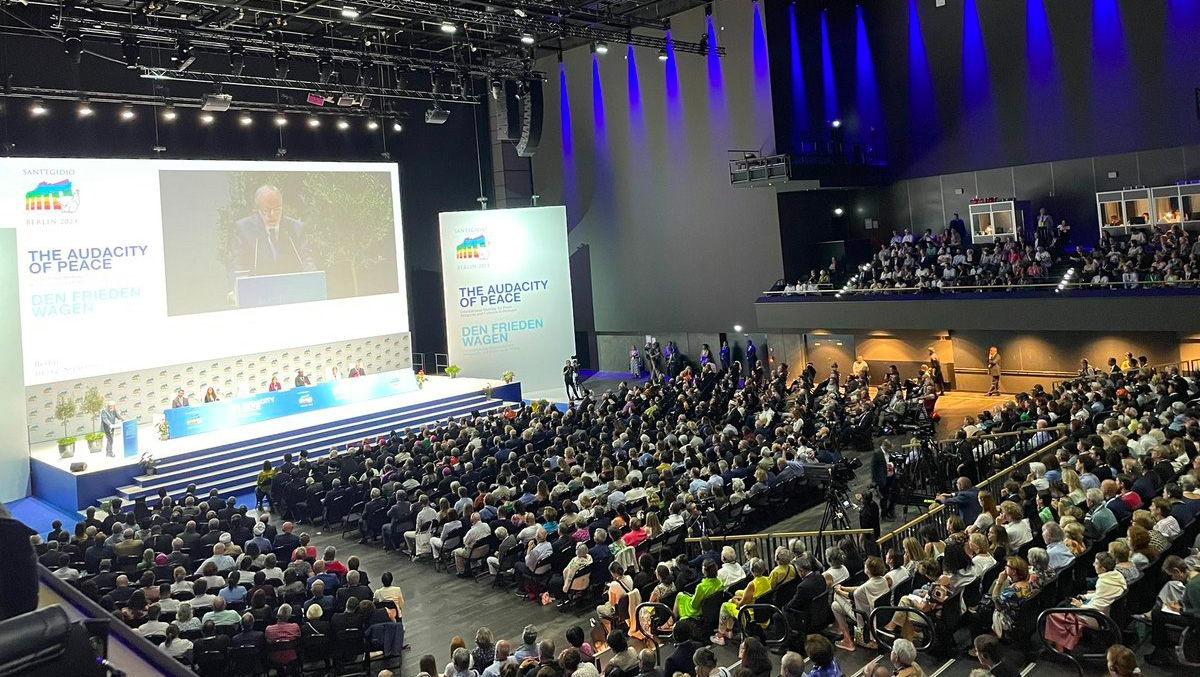
Dear Mr. Chairman, panellists, and all those in the audience!
1. My essential position
I am a Buddhist, so I would like to consider the topic from a Buddhist standpoint. However, it is neither a promotion nor an imposition of Buddhism. I want to share with you what I feel as a person living within the framework of Buddhism in Japan. I would like to share with you my thoughts on the theme of this forum from the perspective of the challenges of religion in the context of globalization.
2. Recognition of reality in Buddhism
From the Buddhist perspective, we can say that human beings are, by nature, divided and that the world is full of uncertainty. Human beings are solitary; no matter how blessed we are, we cannot live in a world without sorrow. For example, I believe that the suffering of separation from loved ones and lost love will never disappear, no matter how ideal society becomes. I think that we are born and must die, and living today means approaching our death daily. However, that is why Buddhism also teaches us to live every day carefully.
3. Peace guaranteed by each religion
Similarly, it can be said that because we are divided, we need solidarity and desire to find peace in the company of others. Therefore, religion guarantees people to be in unity and brings harmony to their hearts. However, it is my personal opinion that we have not yet found a function within each religion to bring peace of mind, even among people of different faiths. That is why I believe and have done that there is a need for dialogue between the other religions. I have always believed that there needs to be a unity of understanding at the macro level between the different religions so that we can feel comfortable with each other even though we belong to different groups with various doctrines.
4. Doctrine and coexistence of religions
In other words, I feel that the question is whether or not individual religions can adequately respond to the ideas of symbiosis and coexistence that we are becoming increasingly aware of in this era of globalization. Generally speaking, religions have doctrines at their core, but I feel that at the level of these doctrines, it is difficult to recognize other beliefs that differ from our own.
5. Fragmentation and religion
In other words, I feel that an exclusive function within each religion makes it difficult for believers of other faiths to enter into the inner circle, even though there is a function within each religion to unite those who are divided within that religion as believers. Considering only this aspect, one could say that religion has the process of separating and isolating people. It may be noted that each religion can give people a sense of unity only to those who are inside the faith, i.e., believers and that each religion has no universality to bring peace of mind to people, including non-believers. Therefore, it seems that division is not only a challenge of globalization, but also a fundamental challenge of the "divide between believers and unbelievers," which will accompany religions as long as they are religions.
6. Globalization and religion
In light of the above, globalization may be an excellent opportunity for religions. Globalization may be a great opportunity for beliefs because we are entering an era in which people of different faiths and cultures cannot avoid meeting each other. I imagine that the pace of this meeting will increase.
7. Openness to salvation and its concreteness
From another angle, the immediacy of information transmission guaranteed by the Internet means that religions that can only work inwardly are now facing a critical moment. What is required here is not missionary work from the standpoint that only those who believe in this teaching will be saved but an open attitude toward salvation, such as "no one will be left behind," as seen in the SDGs and the concrete example of how the people of the St. Egidio community have been close to those who are forced to live on the streets. The SDGs are seen as an open attitude toward salvation, "no one is left behind.
8. Transformation to self-understanding in religion
Individual religions must be the opposite of divisive. Therefore, I believe that each religion must develop a system at the doctrinal level that can provide reassurance not only to its followers but also to followers of all religions. I believe such a mechanism can only be achieved if each religion deepens its self-understanding and moves toward an open understanding of other religions so that different religions can be recognized as they are.
Conclusion: Making the Most of Globalization
Globalization has its critics, but it is also an opportunity for each religion to open itself up to the world as a religion. This is because each religion, which has its conflicts in the unification of the world, has to face the challenge of dealing with the coexistence of people from different faiths. We face a severe question in globalization: How can each religion become a religion for all people while maintaining its individuality and not as a religion that distinguishes between believers and non-believers? How do we transform ourselves in globalization? How must we change ourselves in globalization? I accept that each religion is on a testing ground to broaden and deepen its understanding.
I want to conclude my speech by saying that we are gathered here in Berlin to make the most of this opportunity.
Thank you very much for your attention.
